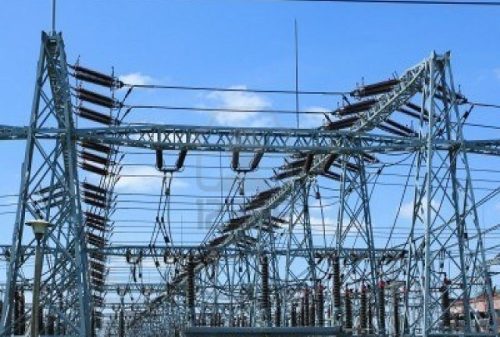Electricity Act (Amendment) Bill: FG may sell 11 Discos to new investors
The Federal Government may re-privatise the 11 electricity distribution companies (DisCos) if the proposed Electricity Act (Amendment) Bill, 2025, currently before the National Assembly, is passed into law.
The proposed legislation, which has already passed second reading, seeks to overhaul the 2023 Electricity Act by closing regulatory gaps and compelling core investors in the DisCos to inject fresh capital or risk losing their stakes. The bill empowers the Nigerian Electricity Regulatory Commission (NERC) to enforce recapitalisation through share dilution, receivership, or outright re-privatisation.
Sweeping Sector Reforms
Sponsored by Senator Enyinnaya Abaribe (Abia South), the amendment mandates investors to recapitalise within 12 months of the bill’s enactment. If passed, it will grant the NERC extensive powers to compel financial restructuring across the electricity value chain.
The proposed reforms, outlined in a draft amendment seen by The PUNCH, have attracted criticism from the Forum of Commissioners of Power and Energy, who warned that the bill could undermine Nigeria’s newly decentralised electricity market and roll back progress made under the 2023 Act.
The bill also mandates the development of a comprehensive financing framework within 12 months to address the power sector’s debt crisis—estimated at over N4tn—and to attract long-term local currency investment.
Breakdown of the Reform Proposals
Sections 228J and 228K of the amended Act require the Minister of Power, in consultation with NERC, to establish a robust financial structure targeting:
-
Recapitalisation of DisCos
-
Local currency financing for gas-to-power and distributed energy projects
-
Phasing out unstructured and regressive subsidies
-
Determination of federal and state equity stakes in the DisCos
-
Concession of certain Niger Delta Power Holding Company (NDPHC) power plants
-
Fiscal and tax incentives to drive private investment
The Act gives NERC power to impose sanctions—including share dilution and re-privatisation—on non-compliant DisCos, particularly those under receivership or financial distress. The regulator must also ensure that any recapitalisation order does not disrupt service continuity or erode investor confidence.
List of Affected Distribution Companies
The 11 successor DisCos affected by this bill are:
-
Abuja Electricity Distribution Company
-
Benin Electricity Distribution Company
-
Eko Electricity Distribution Company
-
Enugu Electricity Distribution Company
-
Ibadan Electricity Distribution Company
-
Ikeja Electricity Distribution Company
-
Jos Electricity Distribution Company
-
Kaduna Electricity Distribution Company
-
Kano Electricity Distribution Company
-
Port Harcourt Electricity Distribution Company
-
Yola Electricity Distribution Company
Official Reaction and Stakeholder Responses
Minister of Power, Adebayo Adelabu, expressed disappointment in the DisCos’ poor performance despite repeated interventions, including debt forgiveness and financial bailouts. In a May 2025 media briefing, he stated:
“The performance of the DisCos has been grossly underwhelming. We can no longer tolerate excuses. If you can’t invest, give way to those who can.”
The Bureau of Public Enterprises reported that over 70% of DisCos failed to meet key performance targets set at privatisation in 2013.
Meanwhile, a senior official of a DisCo, speaking anonymously, affirmed the binding nature of the law, adding that the focus should be on implementation rather than resistance:
“When the National Assembly makes laws, it is binding on all of us. What we should all do is to collectively implement and follow the law.”
The official added that the amendments strengthened NERC’s regulatory authority, which the DisCos were willing to support in principle.
Sector Experts Urge Caution
Power sector expert, Chinedu Amah, stressed that Nigeria’s electricity woes stem more from implementation failure than from a lack of policies.
“We have policies on everything in Nigeria. Yes, there are policy gaps, but maybe we should just remove all the subsidies, flatten the tariff regime, and allow the market to drive investments,” he said.
He emphasized that solving critical infrastructure gaps should not rely solely on DisCos but also involve government and private partnerships.
Another analyst, Habu Sadiek, praised the intention behind the recapitalisation plan but called for key preconditions. He recommended:
-
Settlement of all outstanding subsidy payments
-
Implementation of cost-reflective tariffs
-
A recapitalisation window of 24 months, rather than 12, mirroring the Central Bank of Nigeria’s banking recapitalisation timeline
Pilot Restructuring Programme Ongoing
In May 2025, the Ministry of Power announced a pilot restructuring of two underperforming DisCos—one each from the North and South—under a roadmap developed with the Japanese International Cooperation Agency (JICA), titled Revamping of the Distribution Sector in Nigeria.
An update on the pilot was provided by the Minister’s Special Adviser on Strategic Communications and Media Relations, Bolaji Tunji, who confirmed the process was ongoing and that a briefing would be held in due course.
Conclusion
If passed into law, the Electricity Act (Amendment) Bill, 2025 will usher in a new era of accountability and financial discipline for Nigeria’s electricity distribution companies. While stakeholders have expressed both support and concerns, all eyes are now on the National Assembly and NERC to ensure that any reforms are practical, inclusive, and effectively implemented.














Post Comment